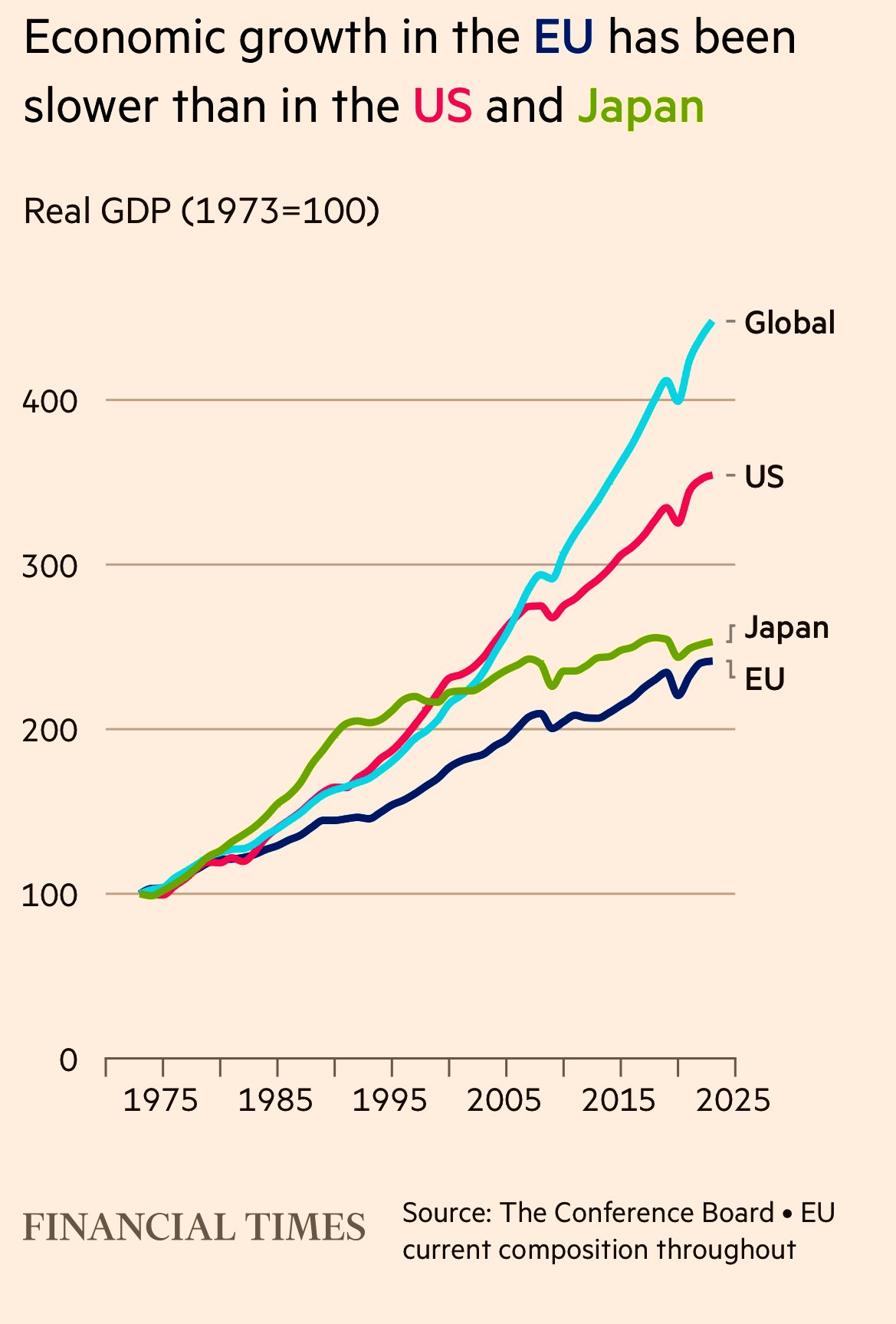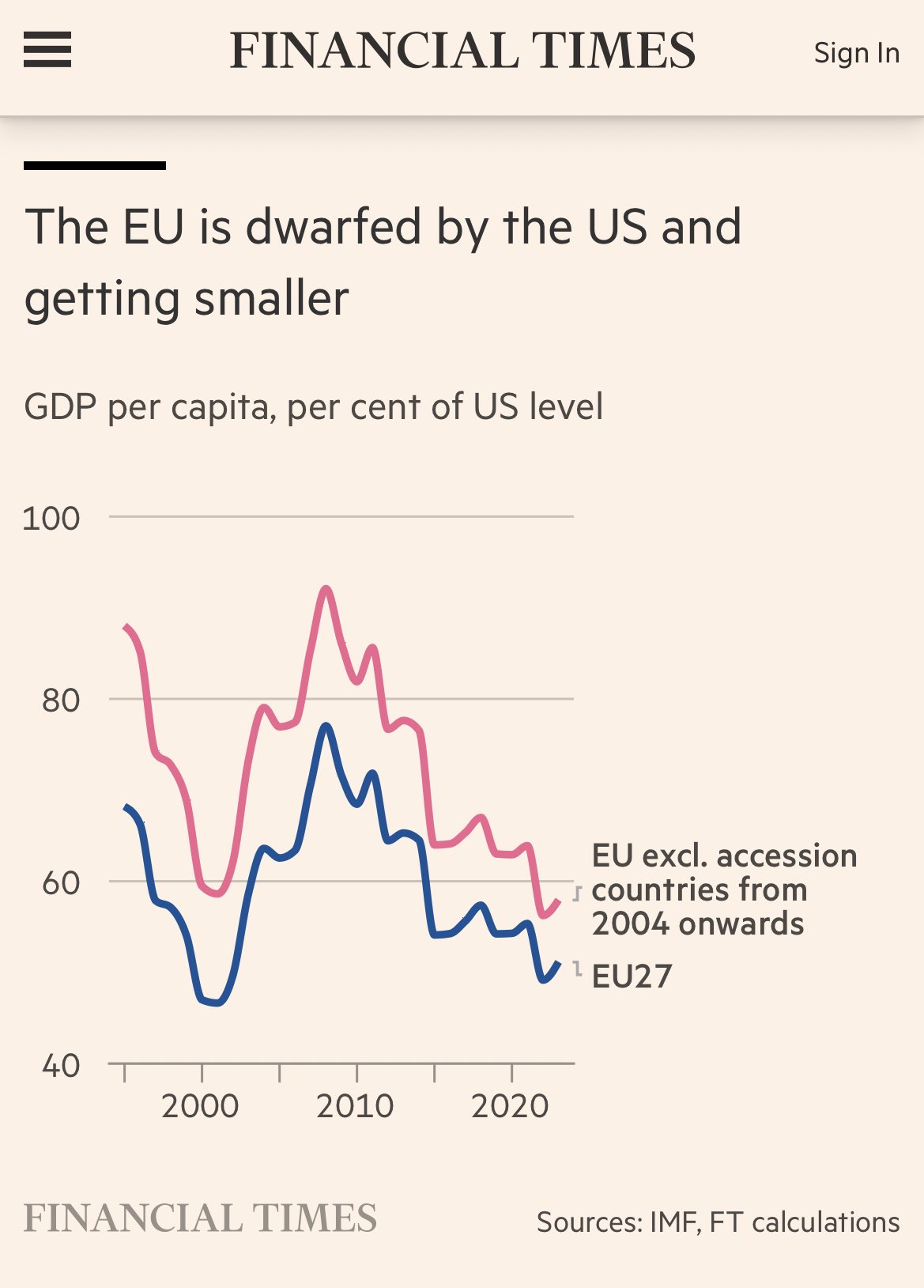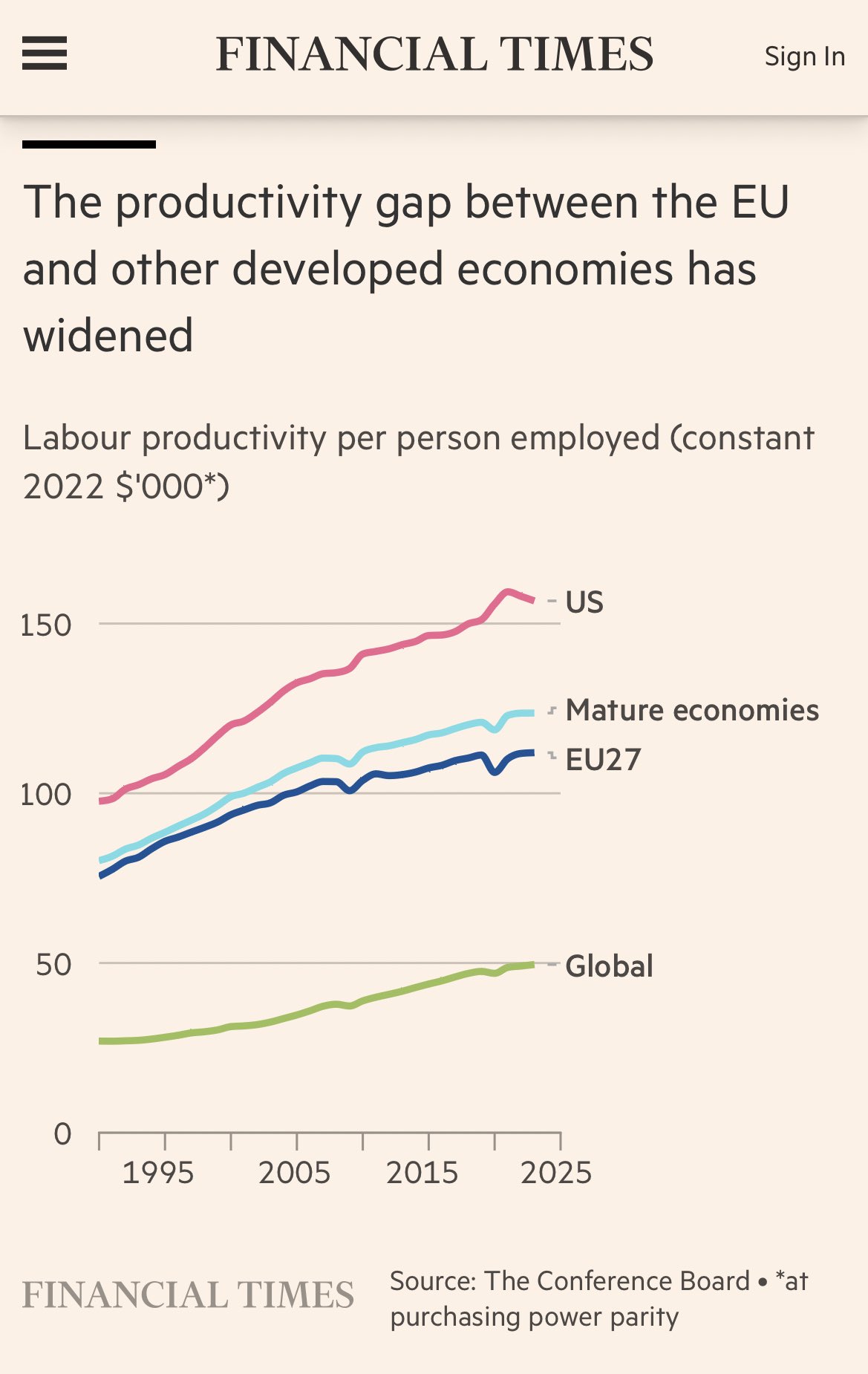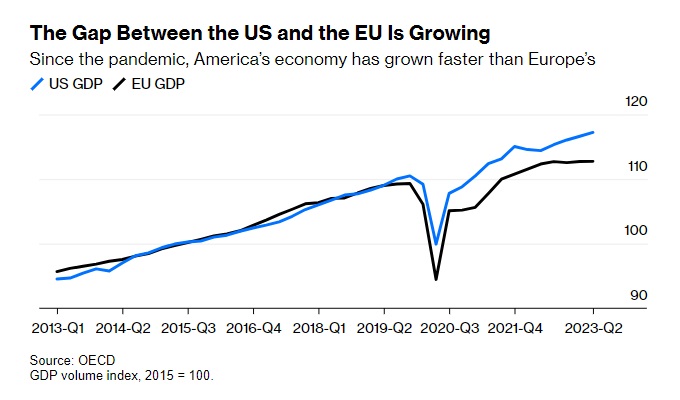"In economics, convergence theory is the common-sense observation that poor countries – in general – should grow faster than rich countries.
But a general principle sometimes has exceptions, and that’s why I put together my anti-convergence club. If you look at members of that club, you’ll notice that when rich countries grow faster than poor countries, the common theme is that the rich nation is much more market-oriented than the poor country.
One example I cite (over and over and over again) is that the United States is richer than the average of countries in the European Union – yet the US routinely enjoys faster growth.
In other words, there is divergence rather than convergence.
Today, we’ll add to our body of evidence. Let’s look at some charts put together by the UK-based Financial Times, which were recently shared on X.
First, we have a chart showing that economic output has expanded faster in the US than the EU since the mid-1970s.
It’s per-capita GDP that really matters, and our second chart shows that the United States does much better on that measure – and that the gap is getting bigger, whether looking at all EU nations or just the ones in Western Europe.
What drives prosperity is productivity, and that’s another area where the United States is diverging from European Union countries.
Here’s another chart that was shared on X. It shows the past 10 years.
The main takeaway is that the US has enjoyed a much stronger rebound from the pandemic.
The above chart came from a column by Professor Tyler Cowen, which was published by Bloomberg.
Here are some of his observations.
…an uncomfortable truth: The gap between the United States and the European Union is growing. …The difference between the two continents’ economies is stark. In 2013, in dollar value, the EU economy was 91% of the size of the US economy.
Now that figure is about 65%. In per capita terms, US GDP now is more than twice that of the EU. …In other words: Much of Europe remains a very nice place to live. But Europe as a whole is losing influence. …a Europe striving to regain its place atop the global economy is a welcome development not just for Europeans but for small-d democrats everywhere. If only it would go about the task with a greater sense of urgency.
Tyler’s column is not solely about economics. He wants a stronger European Union because that region – to its credit – is strong on the rule of law and Western Civilization is a good thing.
But focusing on economics, I can’t resist a final comment about Tyler’s point about the EU having more urgency.
That’s true, but only if the pressure is for better policy, such as Germany’s call for EU spending caps (which would be a big improvement over the so-called Maastricht Criteria).
Given the statist orientation of the crowd in Brussels (home of the European Union bureaucracy), I worry that “urgency” will be used as an excuse to expand government. Just as has happened in the past."
Saturday, November 11, 2023
Why Is There Divergence Between the United States and Europe?
Subscribe to:
Post Comments (Atom)




No comments:
Post a Comment
Note: Only a member of this blog may post a comment.